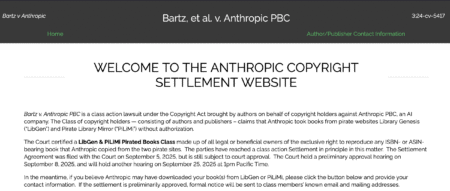A massive NPM supply chain attack that hit about 10% of all cloud environments yielded little for the hackers who…
Post Content Source: Read MoreÂ
Managing a fleet of delivery trucks, vans, or service vehicles is no longer just about keeping engines running. In today’s…
Post Content Source: Read MoreÂ
Post Content Source: Read MoreÂ
In August, we experienced three incidents that resulted in degraded performance across GitHub services. August 5 15:42 UTC (lasting 32…
Earlier this year, GitHub introduced an integrated, enterprise-ready coding agent for Copilot. Coding agent is a software engineering (SWE) agent…
Stu Robson is on a mission to “un-Sass” his CSS. I see articles like this pop up every year, and…
A behind-the-scenes look at a cellular particle experiment by Unseen Studio — from early concept and design explorations to the…
The DistroWatch news feed is brought to you by TUXEDO COMPUTERS. Rodolphe Bachelart has announced the release of Voyager Live 13, the latest version of the project’s Debian-based desktop Linux distribution featuring a customised GNOME desktop: “I present to you Voyager 13 ‘Debian’, based on Debian 13 ‘Trixie’. It features all the updates and almost all the new features….
Organizations can use this policy to establish appropriate guidelines for providing and terminating vendor access to their systems or resources.…
Today’s Java snippet comes from Capybara James. The first sign something was wrong was this: private Map<String, String> getExtractedDataMap(PayloadDto payload)…
Building a browser extension is easy, but ensuring that it’s accessible to everyone takes deliberate care and skill. Your extension…
Ever wanted to build your own video game but felt overwhelmed by where to start? We just published a course…
Most developers are introduced to databases and APIs through a simple pattern: CRUD—Create, Read, Update, Delete. It seems like the…
After graduation, I noticed many fresh grads struggling to land jobs. It wasn’t because they lacked effort or qualifications. The…
YouTube playlists have become one of the most powerful ways to organize, promote, and binge-watch content. In India, trending playlists…
The U.S. Department of Energy’s National Nuclear Security Administration (DOE/NNSA) recently announced that it has selected MIT to establish a new…
Top News Judge puts Anthropic’s $1.5 billion book piracy settlement on hold A federal judge has paused Anthropic’s proposed $1.5…
. Enterprises should inventory runtimes, target the latest LTS, harden supply chains, measure performance, and roll out migrations in a…







